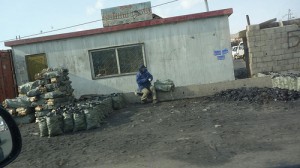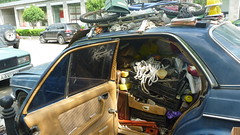 The way people talk and think about poverty has a major influence in how it is addressed in society. The problem is that there is a limited amount of research regarding perceptions of poverty in different parts of the world and throughout history. Armando Barrientos, Professor and Research Director at the Brooks World Poverty Institute (Manchester), has extensive experience with research and policy related to perception of poverty. He joins me on this podcast to talk about what trends can be identified and even a bit of possible good news when it comes to global poverty.
The way people talk and think about poverty has a major influence in how it is addressed in society. The problem is that there is a limited amount of research regarding perceptions of poverty in different parts of the world and throughout history. Armando Barrientos, Professor and Research Director at the Brooks World Poverty Institute (Manchester), has extensive experience with research and policy related to perception of poverty. He joins me on this podcast to talk about what trends can be identified and even a bit of possible good news when it comes to global poverty.
Tag Archives: poverty
Poverty Perceived
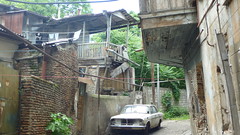
How do we explain poverty to ourselves or to others? When conversations in our communities start about those who live in poverty, how do those conversations sound? Perception of poverty is what it is known as in the academic world and there have been a few researchers looking into this issue in different parts of the world.
The classic characterization you can find in many parts of the world is the ol’ “They’re lazy, if they wanted to they could get out of it.” The other opinion on the matter takes it as more of a systemic thing, as in – those who are poor are poor because the system (economic perhaps) keeps them that way. From there you have variations on both themes, but no matter where you go on this earth, you’ll find opinions about poverty. Some based on first hand experience, some based on direct observation, some based on what they’ve heard or how they feel.
Why does it matter? First of all because if you look at data and history, it is possible to point out where perceptions of poverty can be quite far from reality. Even when they are inaccurate perceptions, they can still have tremendous impact, for example, at the ballot box as we vote for leaders who will represent our opinion on this or other issues at the government level. From there come policies that may address poverty to some degree… again.. influenced by the perception of those who voted.
What is interesting about the research available is the differences not only between nations but within nations and regions. How background, political ideology, religion, and beyond, play a role in how people think about poverty. Who are the groups? How do they differ in terms of perception of poverty? – Those details I will assemble in my next article.
To the Ger District
I’m running late for my next appointment, and as I rush out of the Grand Khan Irish pub, I look across the sea of cars around Sukhbaatar square, and I cover my mouth with my scarf to try and filter the Coal and Carbon Monoxide filled air. The guide books say UlaanBaatar in winter has some of the worst air quality of any capital city in the world, yet somehow I’ve decided breathing through a scarf will make it all alright.
I know that Susan has been waiting for me for at least 20 minutes in front of the Pink Opera house, and in order to make it there, I’ve still got to negotiate at least two of the the very bizarre intersections that this city has to offer. Since many cars don’t find stop lights compelling enough to obey, I take a certain degree of comfort when I see that not only does this intersection feature traffic police trying to look tough in their sunglasses, but young Mongolians with fluorescent safety vests and mini stop signs. After a long delay, they swing out their arms and start waving the stop signs, in a few cases scolding cars that seem to almost run them down. I blow past the people walking at a normal speed, the tall westerner covered from head to toe in winter gear, using a scarf to cover most of his face and sunglasses to hide his eyes. 25 minutes- I zoom past the very small amount of people at Sukhbaatar Square, tourists perhaps, more people who like me, don’t mind showing up at the tail end of winter.
In front of the Pink Opera house, I find the blue SUV, and there inside is Susan, who to this point I have only spoken on the phone with once. After launching into several apologies, Susan immediately puts me at ease: “No problem. Actually, its nice when people are late, gives me a chance to have a little down time.” — Happy to have some downtime; I love Mongolia.
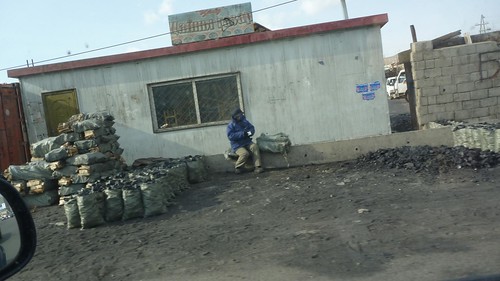
Susan is Project Manager for Flourishing Future*, a non governmental organization working in the Ger (The Mongolian tent many people call Yurts) District. On her business card is the phrase “Helping the Poorest of the Poor” in plain black letter type. Greetings and hello’s being concluded, off we ride through the city center and out to the western side of the city. We drive and talk, my eyes soaking in the rapidly changing cityscape, my mind soaking in the details of what is clearly a very interesting and knowledgeable person. As she explains her relationship to Mongolia, which is more than a decade old, my eyes scan each roadside shack selling bags and bags of coal, wood, car parts, and what I think was scrap metal. Every now and again we pass a line of donkey-pulled carts, waiting to haul heavy loads of wood which I don’t think you’re allowed to carry onto the bus. Susan seems to read the fact that I’m quite taken by what looks like such a different city to when we started, our conversation shifts to what is going on outside and the drunk man that has passed out just as he was crossing the street. Cars drive around him.
A slow left turn and we’re on a dirt road, or at least it seems to be a dirt road, with plenty of craters in it. Susan steers the car towards the side of the road as if we’re pulling over, she explains that we’re not pulling over, but in fact driving on the side of the road or off the road is sometimes smoother than staying on it. As we do this the occasional person walks by us in the opposite direction, unhindered by the potholes. This pseudo road is lined with fences that lead further and further up the mountain, and behind these fences I can see a few very small brick houses and a whole lot of the traditional Gers (or Yurts). It’s the first time I’m this close to this internationally known symbol of nomadic life in Mongolia, and just then it dawns on me-we’ve arrived in the Ger District.
*Link to Rinky Dink Travel, which is associated with Flourishing Future and also took the time to take me around the district.
bm280 On the Ground in Haiti
Our returning champion of humanitarian work, Mr. Tarak, joins us to discuss what is happening on the ground in Haiti as the country struggles to deal with extreme weather and a humanitarian disaster.
The Super Rich vs The Super Poor in the US
Normally I prefer to NOT talk about the US elections. I’m not very impressed or excited by the actions and promises of either candidate of the 2 parties that share control of the country.? Sure Obama says things I like better than the things that McCain says. But that doesn’t automatically mean I’m satisfied or impressed.
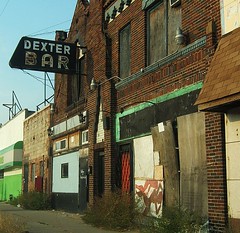 One of the big issues for me is poverty.? Gone is the one candidate who at least spoke the words “the poor” in his speeches and proposed policies (John Edwards), the remaining 2 candidates call everyone working families or hard working Americans, little buzz phrases that are just vague enough to make everyone think this candidate is speaking for them.?? Meanwhile poverty in the US is on the increase, and also alarming, the wealthy class is more wealthy than ever in history and that gap between the two is wider then ever.? A fact that opens the door to many social, financial, and political problems.. yet there is little action or demand to put a stop to it.? (yes yes, both candidates mention their concern for CEO’s making so much money, I’m aware of that)
One of the big issues for me is poverty.? Gone is the one candidate who at least spoke the words “the poor” in his speeches and proposed policies (John Edwards), the remaining 2 candidates call everyone working families or hard working Americans, little buzz phrases that are just vague enough to make everyone think this candidate is speaking for them.?? Meanwhile poverty in the US is on the increase, and also alarming, the wealthy class is more wealthy than ever in history and that gap between the two is wider then ever.? A fact that opens the door to many social, financial, and political problems.. yet there is little action or demand to put a stop to it.? (yes yes, both candidates mention their concern for CEO’s making so much money, I’m aware of that)
All this to bring me to my big recommendation of the day; the latest edition of Radio Open Source, where Chris interviews Chuck Collins.? While I’ve never heard of Chuck Collins, who is a specialist in the areas of US incomes, property, and economics, I found myself rewinding various segments to listen again.
You’ve heard it said before, though rarely do leaders or corporate media investigate it, the inequality boom in the United States is dangerous.? I highly recommend listening to this interview and soaking it in, it is the kind of critical thinking that we should be pummeling these candidates with.. obligating them to not just make the occasional lament, but to lay out a serious point by point plan for turning the tide and making it politically and hopefully cuturally a priority to preserve opportunity and keep the playing field of life and work from becoming an out of control thunderdome.
Quality Media from India
There are few projects on the internet, that make me stand up and say — see.. this is what videoblogging is for! And while I’ve mentioned this particular one before, as I watched their latest video I was once again reminded of how great they are.
The project is called Swajana, a videoblog which started around the time of Jay and Ryanne’s visit to India. It is about people in India. More specifically, people and their jobs. What they do, why they do it, how much they make, how they manage their lives, their hopes for the future, their hopes for their children, their concerns in general. It is a fantastic collection of snapshots, video capsules of life in cities like Pune, India.
Watching the tailor and the tailor’s wife and the tailor’s son, I’m reminded of what life is like outside of this first world disneyland known as Amsterdam. I love living here, but the standard of living is so high, It makes me need to have reality checks, reminders, of how a majority of the world lives. That means poverty. That means jobs that many of us would not do. That means struggling for the bare essentials. While I often say I struggle, my struggle is nothing in comparison. And in my humble opinion, this is the true power, the true significance of what videoblogging and personal publishing could be used for when it comes to global understanding, reporting about reality, and learning from each other. So on this fine friday, I recommend you re-check out and subscribe to Swajana.
